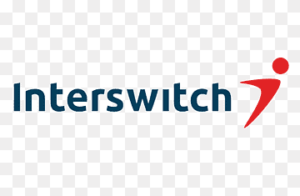
Nigeria’s largest quoted company and Sub-Saharan Africa’s largest cement company, Dangote Cement Plc, on Tuesday completed the book building and allotment of its N100 billion debut bond issuance, making history as the largest single corporate bond issue in the capital market.
The first series under the company’s N300 billion shelf bond issuance programme came on the heels of success of Dangote Cement’s N150 billion Commercial Paper (CP) issuance programme.
Application for the Dangote Cement’s N100 billion Series 1 five-year Fixed Rate Senior Unsecured Bonds, which started on April 3, 2020, closed yesterday and the allotment was subsequently done. The settlement date is on Friday. Minimum subscription was N10 million or 10,000 units at N1, 000 per unit while additional subscriptions were in multiples of N1,000 thereafter. While the bond will be redeemed at the end of its five-year tenor, it will pay fixed coupon twice a year. The indicative coupon range for the book building was between 12.25 per cent and 12.50 per cent.
Dangote Cement plans to use the net proceeds of the bond to refinance existing short-term debt previously applied towards cement expansion projects, working capital and general corporate purposes.
The N100 billion bond is expected to be listed on the Nigerian Stock Exchange (NSE) and FMDQ Securities Exchange, paving way for investors to trade on the corporate bond at the secondary market. The listing of the Dangote Cement’s debut bond will further deepen the Nigerian debt capital market, which had seen large-cap issuers like Access Bank Plc, United Bank for Africa, Lafarge Africa and Flour Mills of Nigeria among others.
With more than N530 billion outstanding corporate debt issues and some N400 billion outstanding sub-national bonds, the debt capital market is increasingly becoming a viable source of long-term funding for both corporates and state governments. Dangote Cement’s N100 billion bond is expected to take the outstanding non-sovereign bonds to the psychological N1 trillion mark.
With the success of large-cap issuance like Dangote Cement’s N100 billion, many analysts said the medium to long-term impact of active issuances and trading on the secondary debt market would further open up long-term debt capital to small and medium companies.
Analysts noted that debt-guaranteeing firms like InfraCredit will also help in broadening accessibility for medium sized companies that would otherwise have had challenges accessing the debt capital market due to their size, credit ratings and history. Backed by the Nigeria Sovereign Investment Authority (NSIA), InfraCredit had provided irrevocable guarantee on the bonds of utility-based entities like Viathan Funding SPV and GEL Utility Funding, which raised N10 billion and N13 billion in December 2017 and August 2019 respectively.
Chief Executive Officer, Central Securities Clearing System Plc (CSCS), Mr. Haruna Jalo-Waziri, said the N100 billion bond would further reinforce the depth of the debt capital market and the ability of local corporates to fund long term projects from the domestic debt market.
He said CSCS was excited as the depository to the N100 billion landmark issuance noting that as the depository to about half a trillion-naira outstanding corporate bonds from 23 issuers, CSCS is playing important roles in building issuers’ and investors’ confidence in the domestic debt market.
According to him, with the debut N100 billion bond, Dangote Cement has once again reinforced the capacity of the debt capital market and set a new benchmark in terms of size and pricing of corporate bonds.
“We earnestly look forward to the approved allotment schedule to promptly credit investors’ accounts and provide a consolidated view of all their investments across the capital market,” Jalo-Waziri said.
He pointed out that with CSCS having full coverage of the market, it is well positioned to clear and settle all secondary market transactions on debt notes, notwithstanding the Exchange where such are traded.
Several analysts had rated the N100 billion bond high, almost on comparable terms as comparable Nigerian sovereign debt issuance, citing the strong investment grade rating of bond, AA+ from Global Credit Rating (GCR) and Aa2.ng from Moody’s.
Beyond its impact on the primary market, analysts expected the size and the strong investment grade rating of the Dangote Cement Bond to enhance its secondary market liquidity, especially with its dual listing on the NSE and FMDQ.
Analysts also expected the impact of the debt issuance to be positive for the company’s equity valuation as the net proceeds of the bond will be used to fund expansion projects and refinance existing commercial bank debt, with expected cost-savings and a better realignment of the company’s capital structure.
Dangote Cement’s shares closed on Tuesday at N117 per share, representing 13.7 per cent dividend yield on the company’s final dividend of N16 per share. Qualification date for the dividend is May 25, 2020 while payment is scheduled for June 16, 2020.
With more than 70 per cent market share of the Nigerian cement market and increasing earnings contribution from the African operations, several analysts said Dangote Cement has been positioned for growth. Analysts noted that increasing adoption of the concrete option for road construction in Nigeria and other African countries is expected to drive overall market demand for cement in the period ahead.
Analysts said the double-digit dividend yield presented retail investors opportunity to earn appreciable returns from Dangote Cement’s shares noting that the steep decline in share prices due to Coronavirus and crude oil shocks offers investors good entry prices.
Nigeria’s most capitalised quoted company, Dangote Cement had indicated it would be distributing N272.6 billion to shareholders as cash dividend for the 2019 business year.
Key extracts of the audited report and accounts for the year ended December 31, 2019 showed that turnover dropped from N901.21 billion in 2018 to N891.67 billion in 2019. Gross profit also declined marginally from N517.90 billion to N511.68 billion. Profit before tax stood at N250.48 billion in 2019 as against N300.81 billion in 2018 while profit after tax dropped from N390.33 billion to N200.52 billion.
The report meanwhile indicated that the group’s investments across Africa have started yielding desired results as Pan-African sales volume grew in the year 2019, hitting 9.6 Mt from 9.4 Mt. Dangote Cement Plant, Mtwara, Tanzania, recorded an increase of 94 percent increase in volume within the review period. Dangote Cement Plant, Pout, Senegal put up a remarkable performance with sales up more than 100 percent of rated capacity.
Group Chief Executive Officer, Dangote Cement Plc, Joe Makoju, said the company maintained strong financial performance despite a low growth environment, pricing pressure and increasing competition in key markets.
According to him, the Nigerian operations maintained volume and revenue performance in a challenging environment as export sales were affected by the border closure in the second half of 2019.
“Looking ahead, I expect an increase in volumes in 2020 as we commence clinker exports via shipping from Nigeria. Pan-Africa volumes were slightly up notably supported by Tanzania and Senegal. I am glad to report that Tanzania contributed positively at earnings before interest, tax, depreciation and amortisation (EBITDA) level. In 2020, I believe Dangote Cement will see an increase in profitability in Pan-Africa driven by higher volumes and further efficiency improvements,” Makoju said.
Makoju, who is retiring from the company, noted that Dangote Cement has grown from a local producer back in 2007 to a major force in global cement production pointing out that Dangote Cement has eliminated Nigeria’s dependence on imported cement and has transformed the nation into an exporter of cement serving neighbouring countries.
Dangote Cement is Africa’s leading cement producer with nearly 46Mta capacity across Africa. It is a fully integrated quarry-to-customer producer, with a production capacity of 29.25Mta in its home market, Nigeria. Obajana plant in Kogi state, Nigeria, is the largest in Africa with 13.25Mta of capacity across four lines; Ibese plant in Ogun State has four cement lines with a combined installed capacity of 12Mta and Gboko plant in Benue state has 4Mta.
In addition, Dangote Cement has operations in Cameroon (1.5Mta clinker grinding), Congo (1.5Mta), Ghana (1.5Mta import), Ethiopia (2.5Mta), Senegal (1.5Mta), Sierra Leone (0.5Mta import), South Africa (2.8Mta), Tanzania (3.0Mta), and Zambia (1.5Mta).
By Taofeeq Salako












